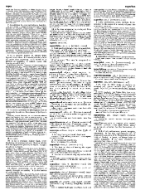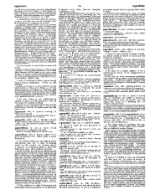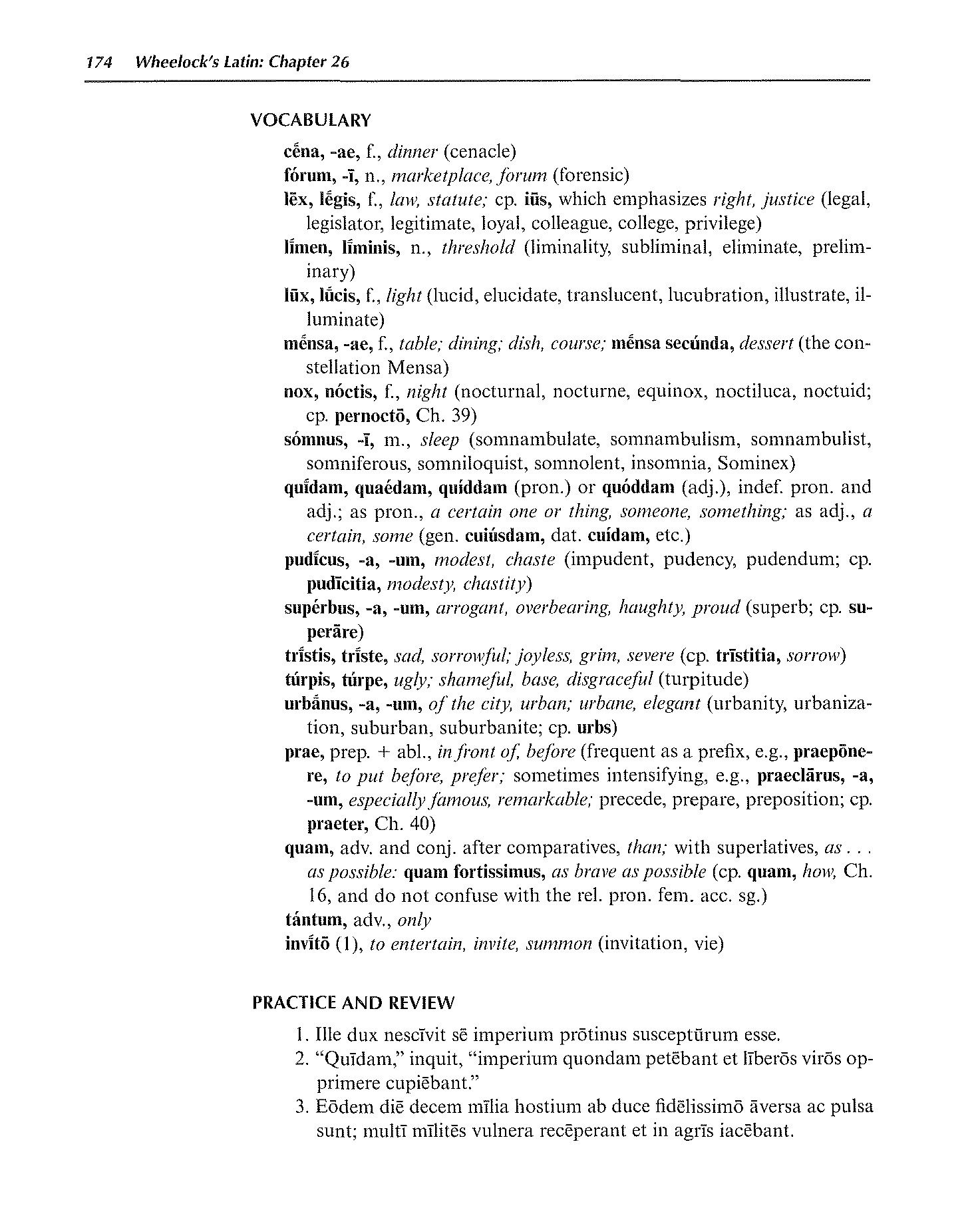
page_listing.tpl
page_subListingDetails.tpl
sub_listingDetails_style1.tpl
sub_listingDetails.title.tpl
superbus arrogant
superbus is a Latin Adjective that primarily means arrogant.
Definitions for superbus
Wheelock's Latin
Adjective
- 1
arrogant, overbearing, haughty, proud
English derivatives:
superb
Oxford Latin Dictionary
Adjective
- 1
Full of lofty self-esteem, proud, haughty, disdainful. (b) (as the conventional ep. or cognomen of L. Tarquinius, the last king of Rome). (c) (poet., of things lofty or loftily situated). (d) (w. abl.) exultant or glorying (in); (also w. inf.).
- 2
Indicative or expressive of pride, disdain, or sim.: (a) (of the face, words, conduct, etc.). (b) (of emblems or trappings of power).
- 3
(of an honour or sim.) That is a source of pride.
- 4
(esp. of buildings or their appointments) Grand, proud, sumptuous. (b) ales ~a, the phoenix.
- 5
(as the name of an early-ripening variety of pear, cf. PLIN.Nat.15.53; also as the name of a variety of olive.
Sentences with superbus
Latin to English
Sī multōs amīcōs habēre vīs, nōlī esse superbus.Compare If you wish to have many friends, do not be arrogant.
Tū regere imperiō populōs, Rōmāne, mementō (hae tibi erunt artēs), pācīque impōnere mōrem, parcere subiectīs et dēbellāre superbōs. (Vergil, Aeneid VI,851-853)Compare You must remember, Roman, to rule the nations with your power (this will be your special skill), and to impose the habit of peace, to spare the conquered and to make war on the proud.
Servitium rex superbus, suus libertas immemor alienus oppugno venio.Compare The slaves of proud kings, unmindful of their own liberty, are coming to attack that of others.
Frangitur ipsa suis Roma superba bonis.Compare Proud Rome is now brought low by her wealth.
Data sources
Notes
- Definitions
- Frederick M. Wheelock, Wheelock's Latin, 6th ed., rev. Richard A. LaFleur (New York, NY: HarperCollins Publishers, 2005): 174.
- P. G. W. Glare, Oxford Latin Dictionary, Vols. 1-8 (Oxford: Clarendon Press, 1982): 1873.
- Word frequencies
- Christopher Francese, "Latin Core Vocabulary," Dickinson College Commentaries, last modified 2014, http://dcc.dickinson.edu.
- Paul B. Diederich, The Frequency of Latin Words and Their Endings, PhD diss., (Columbia University, 1939).
- Louis Delatte, Suzanne Govaerts, Joseph Denooz, and Etienne Evrard, Dictionnaire fréquentiel et index inverse de la langue latine [Frequency Dictionary and Inverse Index of the Latin Language] (Liège, Belgium: Laboratoire d'analyse statistique des langues anciennes de l'Université de Liège [L.A.S.L.A.], 1981): 126.
Bibliography
Allen, Joseph H. Allen and Greenough's New Latin Grammar for Schools and Colleges: Founded on Comparative Grammar. Edited by James B. Greenough, George L. Kittredge, Albert A. Howard, and Benjamin L. D'Ooge. Boston, MA: Ginn & Company, 1903.
Crystal, David. A Dictionary of Linguistics and Phonetics. 6th ed. Oxford, UK: Blackwell Publishing, 2008.
Delatte, Louis, Suzanne Govaerts, Joseph Denooz, and Etienne Evrard. Dictionnaire fréquentiel et index inverse de la langue latine [Frequency Dictionary and Inverse Index of the Latin Language]. Liège, Belgium: Laboratoire d'analyse statistique des langues anciennes de l'Université de Liège (L.A.S.L.A.), 1981.
Diederich, Paul B. The Frequency of Latin Words and Their Endings. PhD diss., Columbia University, 1939.
Francese, Christopher. "Latin Core Vocabulary." Dickinson College Commentaries. Last modified 2014. http://dcc.dickinson.edu/latin-vocabulary-list.
Gildersleeve, Basil L., and Gonzales Lodge. Gildersleeve's Latin Grammar: Third Edition, Revised, and Enlarged. 3rd ed. London, England: Macmillan and Co., 1903.
Glare, Peter G.W. Oxford Latin Dictionary. Vols. 1-8. Oxford, England: Clarendon Press, 1982.
Krüger, Bernd. "Latin Conjugation Tables." Cactus2000. Accessed May 5, 2023. https://latin.cactus2000.de/index.en.php.
Pierson, Nick. "Sound of Text." Accessed October 26, 2019. https://soundoftext.com.
Wheelock, Frederick M. Wheelock's Latin. 6th ed. Revised by Richard A. LaFleur. New York, NY: HarperCollins Publishers, 2005.
Wiktionary Contributors. "Victionarium." Wikimedia Foundation, Inc. Updated March 18, 2019. https://la.wiktionary.org/wiki/Victionarium:Pagina_prima.
Citation
Chicago (17th ed.)
Allo Contributors. "superbus, superba, superbum (adj.) - Latin Word Definition." Allo Latin Dictionary. Last modified . Accessed January 30, 2026. http://ancientlanguages.org/latin/dictionary/superbus-superba-superbum.
Entry created on . Last updated on .








